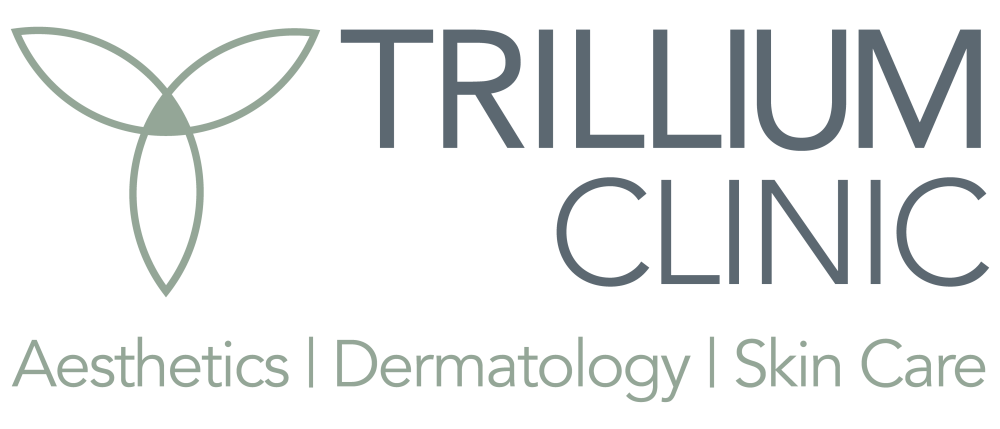Melasma is a very common skin condition. However, patients struggle to find effective treatments. We understand the frustration of dealing with melasma. At the Trillium Clinic, our solutions are designed to address melasma at its cause, helping your skin heal and giving you the clear, healthy radiant skin that you desire. Begin your advanced melasma treatments today, and say goodbye to the persistent facial pigment of melasma.
What is Melasma

Melasma appears as brown or grayish-brown patches on the skin. The patches are typically symmetrical and have a well-defined border. They usually do not cause any physical symptoms like itching or pain but can be a cosmetic concern for some individuals. Sun exposure is a significant trigger for melasma. Ultraviolet (UV) radiation stimulates the production of pigment-producing cells called melanocytes, leading to increased melanin (pigment) production in the affected areas. Hormonal changes, such as those associated with pregnancy or the use of certain contraceptive pills, can also contribute to melasma development or exacerbation.
What Causes Melasma
The exact cause of melasma is not fully understood, but it is believed to be influenced by a combination of factors, including hormonal changes, sun exposure, and genetic predisposition. Hormonal changes, such as those occurring during pregnancy (also known as “pregnancy mask”) or due to hormonal medications or therapies, can trigger or worsen melasma.
How is Melasma treated
While there is no cure for melasma, various treatment options can help manage the condition and improve the appearance of the skin. These may include:
Sun protection: Wearing sunscreen with a high sun protection factor (SPF) and broad-spectrum protection is crucial in preventing melasma from worsening. Sunscreen should be applied daily, even on cloudy days, and reapplied every few hours when exposed to the sun.
Topical treatments: Certain topical creams or ointments containing ingredients like hydroquinone, retinoids, corticosteroids, or azelaic acid may be prescribed to lighten the dark patches and even out the skin tone. These medications are typically used over a period of several weeks or months.
Procedures: In some cases, dermatological procedures such as chemical peels, microdermabrasion, or laser therapy may be recommended to target the excess pigment and promote skin rejuvenation.
Managing melasma involves a combination of lifestyle modifications and ongoing care. In addition to sun protection and prescribed treatments, it is essential to avoid triggering factors such as hormonal medications, minimize sun exposure, and use gentle skincare products suitable for sensitive skin.
Embark on your journey to radiant skin
Although melasma can be persistent, it does not affect overall health. Embracing self-acceptance and seeking support from healthcare professionals can help individuals manage melasma and feel confident in their own skin. If you suffer from melasma make an appointment here to see one of the dermatology providers at the Trillium Clinic in Chapel Hill. We will provide an accurate diagnosis, recommend appropriate treatment options, and offer guidance on management and prevention. We are currently accepting new patients from Chapel Hill, Carrboro, Hillsborough, Pittsboro, Mebane, Durham, Burlington, Cary, and surrounding cities, who suffer from melasma. Call us today to discuss appropriate treatment options.
